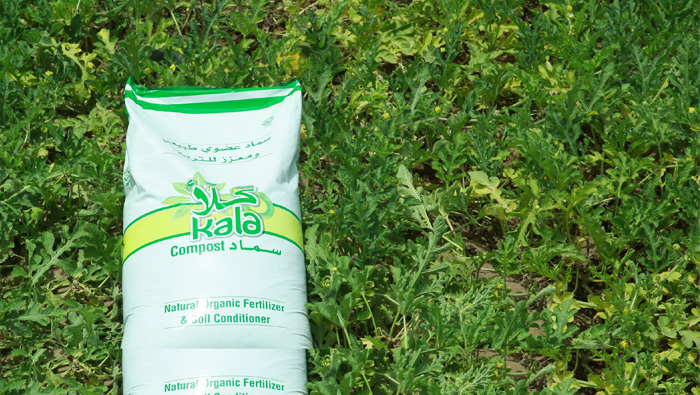
Muscat: Haya Water on Monday said its compost plant plans to produce 400,000 bags of Kala, an environment-friendly compost fertiliser, this year. Haya Water produces three sizes of Kala compost - 10 litres, 20 litres, 50 litres, according to a company release.
The company said that the production of this plant has reached 381,412 bags in 2015, achieving sales of 100 per cent of the production. Moreover, the year 2015 witnessed the production of the million bag of Kala compost.
Haya Water converts the sediment generated from wastewater treatment (sludge) and mixes it with other organic materials such as remnants of trees and green grass using an open-air piles technology to produce ‘Kala’ with high quality specifications that are identical to international environmental specifications. Kala is widely used in farms and home gardens, thus contributing to the elimination of one of the direct pollution sources that releases greenhouse gases and has impact on the world climate.
Haya Water equipped the plant with modern technologies to ensure best quality processes. The plant also includes a new laboratory, which is equipped with the best techniques that are used on product testing and ensure its conformity with the approved standards before launching it on the market with the supervision of a number of experts in this field. In addition, Haya Water central laboratory collects and analyses samples of the final product of Kala to ensure compliance with the approved standards.
Haya Water, for quality purposes, has also sent samples of Kala to three internationally certified laboratories in both the United Kingdom and Hong Kong in 2014 to conduct necessary laboratory tests and to ensure that the product does not contain any harmful materials to human, agriculture or the environment in general.
In an extraordinary step in the field of wastewater in the Middle East, Haya Water has obtained an international and official recognition from the United Nations in 2013. This recognition has been successfully obtained after listing the Natural organic compost plant in Al Amerat in the global environmental project clean development mechanism (CDM), which was approved by the United Nations through ‘Kyoto Protocol’ treaty, which commits industrialised nations to reduce air pollution and greenhouse gas emissions that causes direct impact on the climate and then on the ozone layer.
The plant has also been awarded for being the best Initiative in the ceremony of Oman Awards for Environment Protection in 2011.
In the field of scientific research, Sultan Qaboos University’s College of Agriculture collaborated with Haya Water to study Kala compost for 3 agricultural seasons (2013-2015). The study investigated the effects of Kala on the growth and production of various agricultural crops (vital, foliar, fruits). Moreover, it explored whether the soil and the crops are affected by heavy metals and harmful microbes.
The study also investigated the usage of Kala as a fertiliser for the crops that are planted in the Omani environment and hot and dry climate. In addition, the study made a comparison between Kala compost, a globally certified organic fertiliser, a local fertiliser and a chemical fertiliser. The results on Kala were positive as it does not cause any contamination to the soil nor the plants and it is free of harmful microbes, and these plants do not contain any bacteria, which is harmful to humans.
Moreover, it was found that Kala has higher economic value than other fertilisers because the crops that use Kala have higher productivity than other fertilisers. In fact, Kala is considered suitable for plant growth since it dissolves with other elements and helps the plants to grow healthy.
The aim of this study is to prove that Kala is safe and it causes no harm either on plants or on human health.